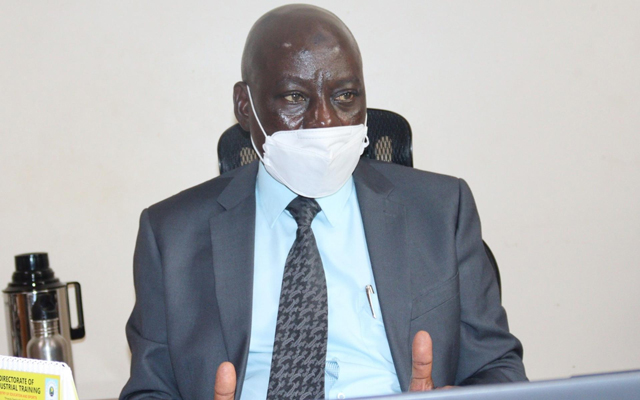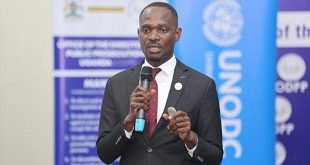
Kampala, Uganda | THE INDEPENDENT | The decision by the Ministry of Education and Sports to remove board members or members of the governing council as signatories to the accounts of government-aided schools and institutions has backfired throwing the ministry into chaos.
Two weeks, ago, the new permanent Secretary Ministry of Education Ketty Lamaro, wrote to all headteachers of government aided secondary schools and principals of Business, Technical, Vocational Education and Training (BTVET) institutions, asking them to drop the board members or members of the governing council as signatories to their accounts.
In the circular, the Permanent Secretary said that the board members or governing council members should concentrate on their functions including oversight, monitoring, supervision, and approvals. Lamaro noted that for board members to be signatories on bank accounts does not only compromise the principle of good governance but also causes a conflict of interest between management and governing bodies.
“This practice must stop, and oversight bodies should stop involving themselves in the operations of the institutions. You are therefore directed to immediately withdraw the signatures of board/governing council members who are signatories to bank accounts and replace them with technical officers,” the circular read in parts.
However, the directive did not go down well with the foundation bodies such as the Church of Uganda and Uganda Muslim Supreme Council. For instance, the Provincial Secretary of Church of Uganda, Rev Canon William Ongeng described the directive as intimidating and inexplicit on some issues, saying before writing the circular the ministry should have consulted the foundation bodies.
In his August 19, 2021 letter, Rev Canon Ongeng directed all diocesan education coordinators to ensure that headteachers and principals of the Church of Uganda government grant-aided institutions halt the implementation of the ministry’s directive.
“…halt implementation of the aforementioned directive until we receive official communication from IRCU (Inter-Religious Council of Uganda) council of presidents and church of Uganda board of trustees (bishops),” he communicated.
On Friday, the UMSC Education Secretary Sheikh Juma Bakhit Cucu also told Lamaro that her directive was a blunder since the ministry did not consult the foundation bodies.
A source in the Ministry told URN on condition of anonymity because of the sensitivity of the matter that besides the open communication from the Church of Uganda, other foundation bodies are also pressurizing the ministry to rescind the decision.
“Most of them saw this as a move by the government to seize the control and ownership of their schools and institutions. To them, if they can’t control finances of the institutions, then they have no ownership rights,” the source noted.
The source also reported that some foundation bodies have even threatened to do away with government aid and grants so that they run their respective institutions as private entities.
“This threat is real and has a big impact on the entire education sector and cannot be taken lightly. The ministry has been receiving complaints from all founders with more pressure coming from traditional religions, (the Catholics, Anglican, and Muslims) who own more of these schools,” the source said.
Rev. Fr. Ronald Okidi Okello, the National Executive Secretary for Education at the Uganda Episcopal Conference notes that the catholic church singly and as part of the inter-religious council has been engaging the ministry on the matter.
Although Rev. Fr. Okello declined to divulge details of their engagements, he said that by the end of this week, they expect to complete the engagements and communicate a way forward. “We are aware of it and we are concerned about it. But we don’t want to share our position to the media right now since we are still in negotiations with the government,” he told Uganda Radio Network.
Confirming the magnitude of the problem at hand, Ismael Mulindwa, the Director of Basic Education in the Ministry of Education noted that following the responses from different foundation bodies, the ministry has halted the implementation of the directive.
“That is becoming a very serious issue. We are currently reviewing the situation and try to engage the representatives of the foundational bodies so that we come up with a way forward. But for now, the directive has been halted and heads of institutions have been informed,” Mulindwa noted.
On Friday, Lamaro told a delegation of UMSC officials led by Deputy Mufti Sheikh Abdallah Ssemambo that she would issue another circular recalling the decision. The government meets the salaries of teachers and instructors in government-aided schools on top of providing subsidies and grants for infrastructure development.
This move seemed better for the government as it lacked funds to build schools and institutions in many parts of the country yet it is obliged to offer education to its citizens.
*****
URN
 The Independent Uganda: You get the Truth we Pay the Price
The Independent Uganda: You get the Truth we Pay the Price


